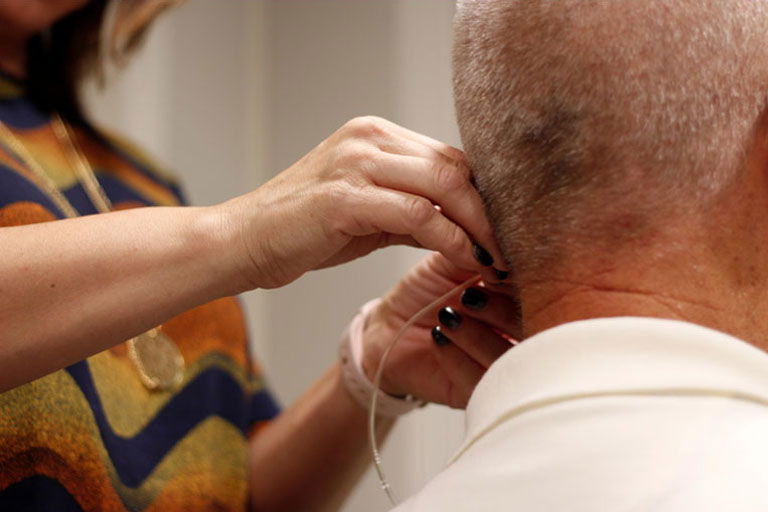There’s a lot of information out there about hearing loss. In fact, there’s so much, it’s easy to get overwhelmed. What’s true and what’s not? As hearing care professionals, it’s our job to give you the knowledge you need to make the right decisions about your hearing health. Today we’re going to take a closer look at some common hearing loss myths – and the real truth behind them.
Let’s get started!
Myth: Hearing loss only affects a small amount of the population.
The National Institute on Deafness and Other Communication Disorders (NIDCD) reports that about 96 million Americans aged 18 and over experience some trouble hearing. And, one in eight people aged 12 and up have hearing loss in both ears, based on standard hearing tests. This is no small number!
Myth: Only older people have hearing loss.
Hearing loss can affect people of all ages. Although it’s true that you are more likely to experience hearing loss as you grow older, especially over age 50, any generation can have trouble with hearing. Non-age-related factors that often lead to hearing loss include exposure to loud noises, infections or physical trauma, medication interactions, and other issues that only a professional can diagnose.
Myth: I’ll notice if I’m losing my hearing.
Unfortunately, often we’re the last to realize we’re experiencing hearing loss, because it tends to happen gradually over time. Very few of us wake up in the morning and realize our hearing isn’t quite what it used to be. Typically, if you’re not getting regular hearing tests, you may not notice these small changes. Are you asking people to repeat themselves? Finding yourself turning up the volume on the TV, radio, or phone? Avoiding noisy places? These might be signs of hearing loss.
Myth: I can just buy some hearing aids online.
You may be tempted to simply turn to online shopping to solve your hearing loss issues. However, when you purchase hearing aids off the internet or from an infomercial, you will not get the same results or personal care that you can with a Doctor of Audiology. Dr. Brandi R. Shepard knows how to fit and fine-tune your hearing aid so it works for your prescriptive needs and your personal hearing needs. Plus, she understand and will plan for your future hearing care, providing the unique service you can only get from someone who knows you.
Myth: Hearing loss doesn’t affect my overall health.
Even mild hearing loss can increase your risk for both physical and cognitive issues like balance, falling, and even dementia, according to experts at Johns Hopkins Medicine. Mild hearing loss can double the risk of dementia, and moderate hearing loss can triple it. Plus, hearing loss makes it harder for the brain to process sound, leaving it (and you) tired and stressed-out. Find out more about hearing health and cognitive decline from other articles on this website.
Hearing Care is Health Care
When we say “hearing care is health care,” what we mean is that good hearing health can really improve your overall well-being and quality of life. That’s why our practice offers Oticon’s life-changing BrainHearing technology. Hearing aids with BrainHearing technology give your brain the information it needs to make sense of sound – letting you process and understand speech and sounds more easily and more efficiently. Watch the videolink to video about BrainHearing on this website to learn more about BrainHearing.




